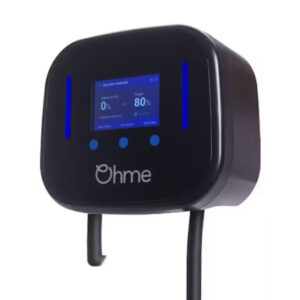When carmakers talk about electrified vehicles, they’re counting hybrids, plug-in hybrids, EVs, and in some cases hydrogen fuel-cell vehicles in the mix.
And when a single model has several different electrified variants, carmakers will count each of those separately towards their electrification goals.
Later this year BMW will show the first all-electric M badge car, launching the i4 M50 – a powerful, high-performance electric vehicle shaping the future of M.
Next year Mercedes plans to introduce 10 new EVs through its EQ brand, including the 2022 EQS. With Ford also intending to start production of the F-150 Lightning, an electric version of America’s bestselling vehicle.
During 2023 Honda have committed to building an EV (in partnership with GM) and Mazda plans to show at least two plug-in hybrids, with Nissan planning to launch eight EVs by the end of the year and hopes to be on pace to sell 1 million hybrid or electric vehicles per year globally.
Eventually Land Rover is expected to show its hand with their first all-electric vehicle in 2024. Alongside Volvo, who announced the XC60’s successor will be all-electric and be the first vehicle to utilize technology developed through a joint venture with Swedish battery company Northvolt.
2025 seems to be the year things really accelerate:
- Audi plan to have 30 electrified vehicles, with 20 of those models being EVs.
- BMW expects sales of hybrid & EV’s to account up to 25 percent of its global sales.
- Ford says it will invest$29 billion n EV’s
- GM announced investing $27 billion with plans to have 30 EVs on the market
- Hyundai vows to have 23 EVs worldwide by 2025
- Land Rover promises to have six EVs by the end of the year.
- Toyota will launch 60 new hybrid, electric, or fuel-cell vehicles.
- VW plans to have built 1.5 million EVs across its brands by the end of the year.
- Volvo expects 50 percent of its global sales to come from EVs.
Interestingly there is only one manufacturer (aside of Tesla) who have hammered a stake in the ground and stuck their neck on block, some saying taking a huge risk.
Amazingly Jaguar Land Rover boss Thierry Bolloré has confirmed that Jaguar will become an all-electric car brand from 2025.
Saying, “By the middle of the decade, Jaguar will have undergone a renaissance to emerge as a pure-electric luxury brand with a dramatically beautiful new portfolio of emotionally engaging designs and pioneering next-generation technologies.
With the other global car brands seemingly likely to continue selling petrol and diesel vehicles right up to the UK government ban in 2035, will Jaguar steal a march or will their sales nosedive?
Most car brands don’t seem to be expecting pure electric vehicles to be adopted by the mass market until we get close to the 2030 deadline. Things may accelerate faster than they think.
Looking how the market is going, we believe Jaguar may just be on to something. They’re being different and taking a risk, sometimes this is required to stand out from your competitors.


